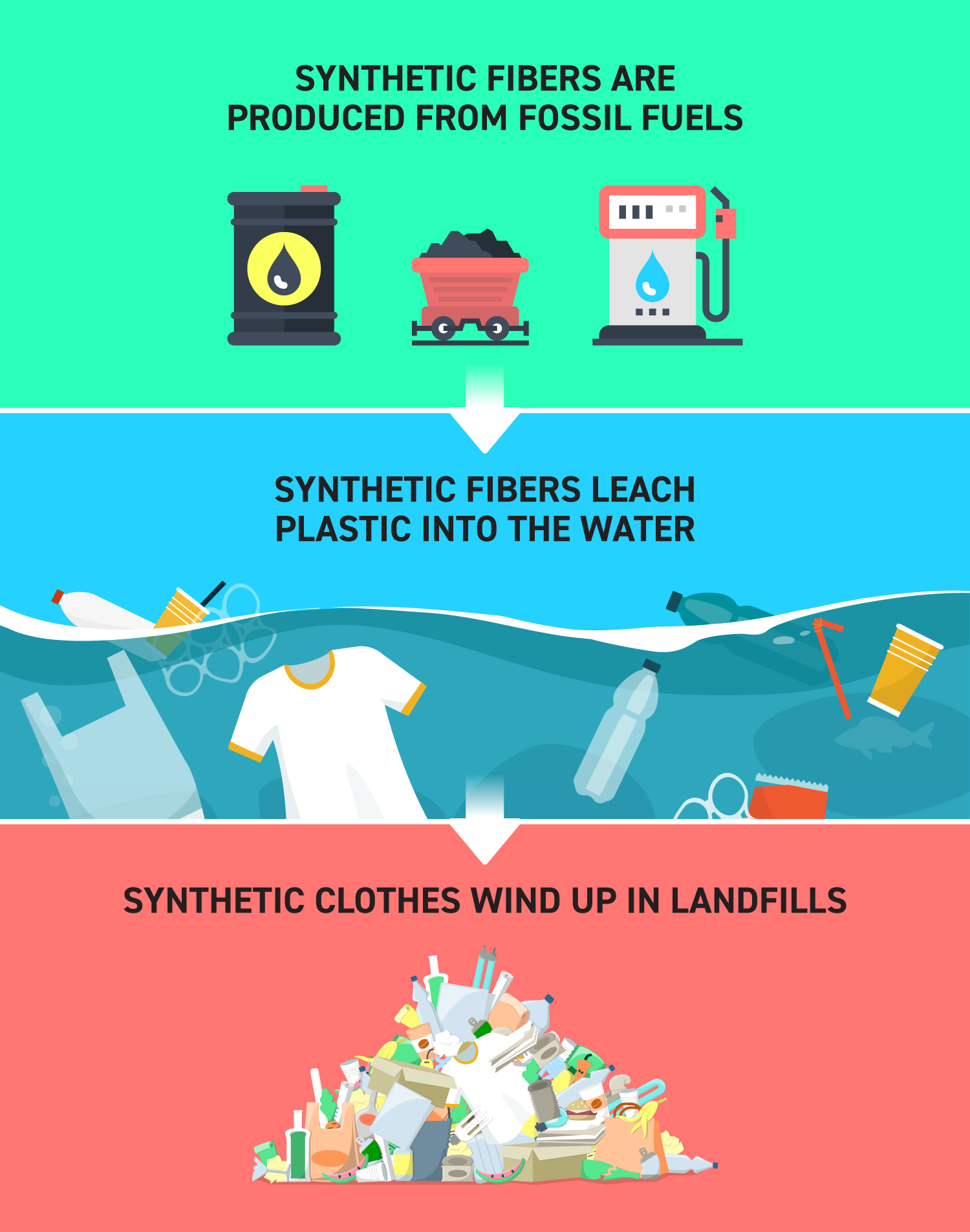Fake vs. Natural
Natural fibers have been a sustainable and renewable resource throughout human history. Natural materials have had a vital influence in North America, from early frontier trappers to modern fashion and design.
Today, most natural materials are produced on farms and ranchers. Some natural fibers are harvested as a part of healthy wildlife management. What the materials have in common is a dedication to craftsmanship and quality.
Natural materials are sustainable not just in their production, but also their use. Natural materials are reusable and biodegradable. Leather, fur and wool can last for decades and are often passed down from generation to generation and have become cultural status symbols.
In contrast, synthetic fibers contribute to the unsustainable “fast fashion” problem. “Fast fashion” is the concept of churning out cheap, synthetic clothing to match the trends of the moment–before throwing them away to move on to the next seasonal trend.
Fast fashion is a cycle of pollution. Synthetic materials are derived from fossil fuels, which contribute to climate change. Synthetic fabrics don’t biodegrade, so they can sit in landfills for hundreds of years. And synthetic fibers also pollute our waterways.
According to the New York Times, more than 60 percent of fibers used in fashion are synthetic, and 85 percent of garments wind up in landfills or incinerated. “Future archaeologists may look at landfills taken over by nature and discover evidence of Zara,” the paper writes.
Scientific research has found that synthetic clothing sheds plastic microparticles in the wash. According to a 2019 study published in the journal Nature, “Microplastic pollution caused by washing processes of synthetic textiles has recently been assessed as the main source of primary microplastics in the oceans.”
These microparticles get into the water supply, where they can poison aquatic wildlife. According to National Geographic, plastic microparticles are the leading cause of ocean pollution. San Francisco Bay alone was found to have 7 trillion plastic microparticles. Fast fashion and synthetic fibers are a contributor to this problem: Researchers have estimated that 35% of all ocean microplastics come from washing textiles.

Natural Fibers: Made by our planet

Ethical.
Made by people who are paid fairly for their labor, treated with respect and dignity as well as supports their primary source of steady income.

Quality.
The durability of products made from natural fibers is unparalleled creating fashion that is made to last and be enjoyed for years to come.

Sustainable.
Fashion that can be reused, reworn and recycled creating less waste and keeping materials out of landfills for as long as possible.
Did You Know…
 Alligator farms have helped conservation efforts for the species in Louisiana, where gators were once a threatened species?
Alligator farms have helped conservation efforts for the species in Louisiana, where gators were once a threatened species?
The fur industry supports about 200,000 jobs in the U.S?
When wool biodegrades, it can fertilize plants with nitrogen, similar to a turf product?

